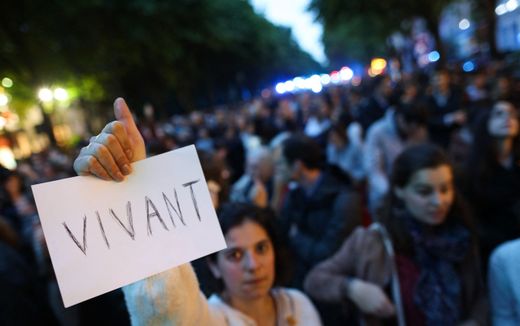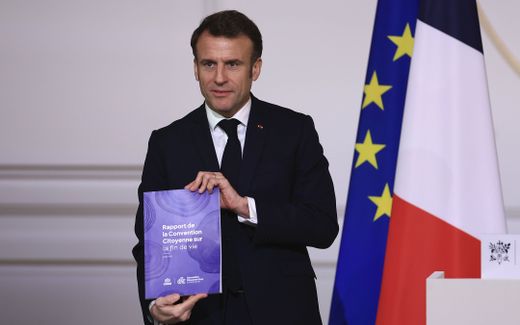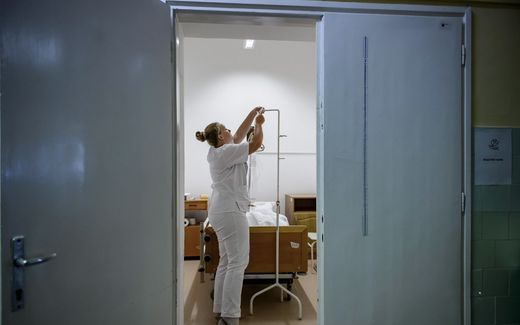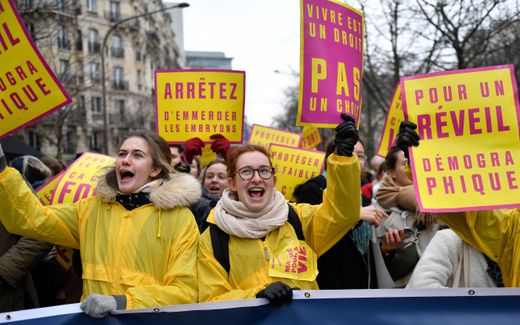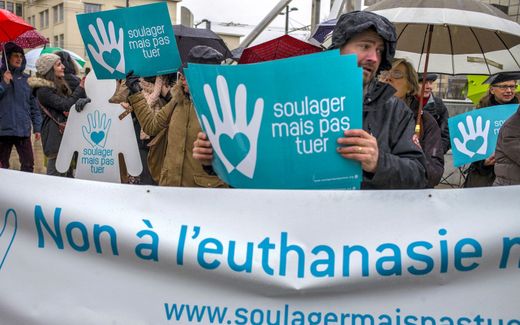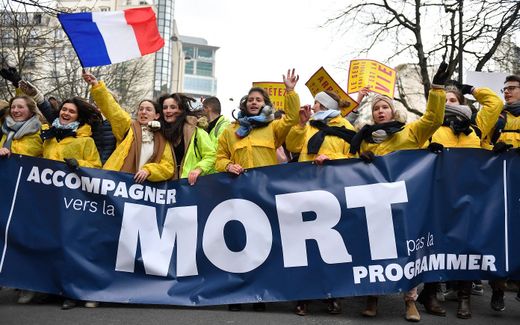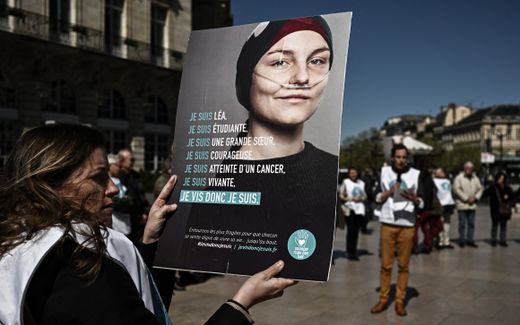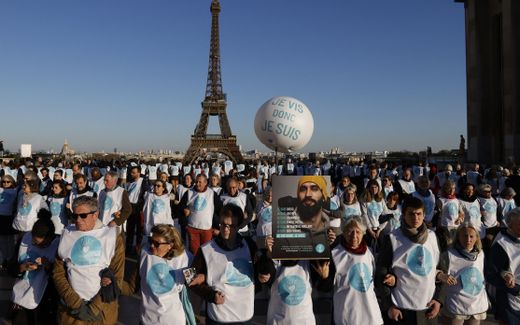Column from France: It is still a mystery how to finish the end-of-life debate
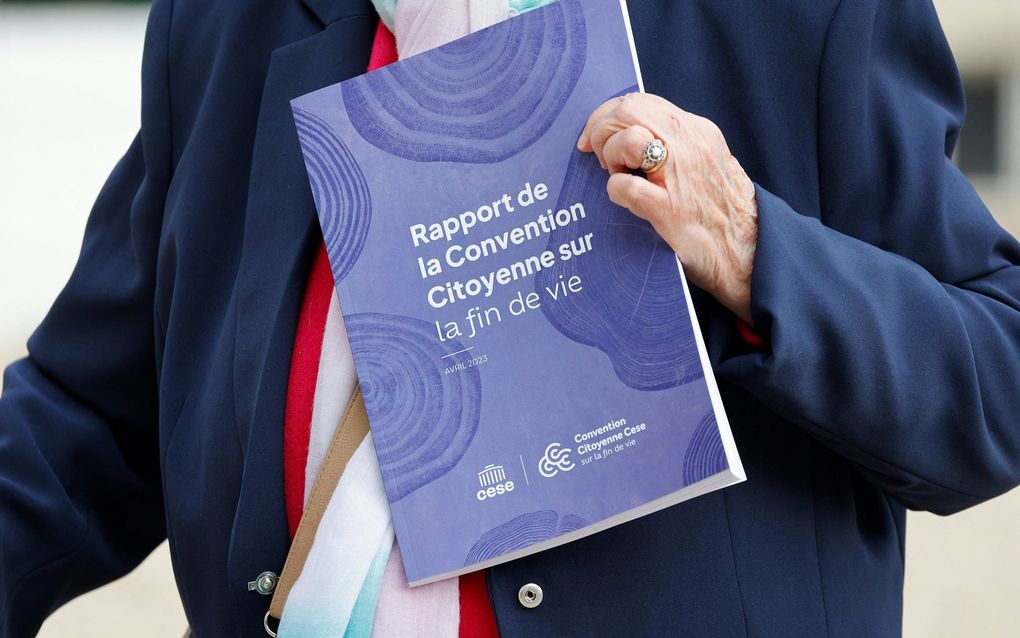
A convention member holds a document reading "report of the Citizens' Convention on the End of Life" prior to a meeting between the French President and members of the "Citizens' Convention on the End of Life". Photo AFP, Ludovic Marin
Christian Life
France is deeply divided on the End of Life issue, columnist Marc Derœux writes. Is it possible to find a way out?
“The debate on the end of life is not new”, MP Olivier Falorni writes in the introduction of a report on the proposed law on the right to a free and chosen end of life. Report No. 4042 was presented to the National Assembly on behalf of the Committee of Social Affairs.
"Over the last twenty years or so, France has adopted a series of laws to accompany people at the end of their lives, following high-profile cases and calls for the 'right to die with dignity'”, Falorni continues. He points out that France continues to prohibit the “medical profession from proposing solutions whose main effect would be to induce a rapid death”, unlike a growing number of other European countries. According to Falorni, these solutions “could be a form of liberation for patients destined to die in great suffering.” “The proposed law is intended to respond to these situations, which are far from exceptional.”
Framework
Inspired by the conclusions of the Citizens' Convention on the End of Life, the French government took up this issue with determination and made it a priority for 2023. In September 2022, the President of the Republic had asked the Economic, Social and Environmental Council to organise and lead a Citizens' Convention on the end of life. The central question to be answered by the Citizens' Convention was: "Is the framework for support at the end of life adapted to the different situations that arise, or should changes be introduced?"
In total, 150 volunteer citizens, representing the diversity of French society, met from December 2022 to April 2023. The main conclusion of this Citizens' Convention can be summarised as being in favour of both active euthanasia and assisted suicide. It considers self-determined death to be a "necessary condition" to enable everyone to die with dignity.
Endless discussions
The year 2023 has therefore been particularly marked in France by this eminently ethical and therefore sensitive, not to say controversial, debate. The latter led to endless discussions in parliamentary committees, symposia of all kinds, articles from all sides and contradictory dossiers.
Some fear the legalisation of euthanasia that is not called euthanasia. Others call for the right to die with dignity by choosing one's own death. And almost everyone agrees on the need for better support for people at the end of their lives. Caregivers are also divided on this complex and sensitive issue.
Polling institutes like to present themselves as arbiters of peace by presenting results that tend to show that the majority of French people are in favour of active assistance in dying. But is it necessary to follow public opinion on an issue that is as complex as it is sensitive, with controversial ethical consequences? An Ifop survey carried out in April 2023 reveals the ambivalence of the French on this issue. In total, 70% are in favour of active euthanasia. But only 36 per cent would consider euthanasia if they were suffering from a painful and incurable illness. Among 18-24 year olds, 53 per cent do not consider it a priority, while 54 per cent of 35-49 year olds do.
Strong emotions
The French head of state, Emmanuel Macron, wants to put an end to this controversy by 2024. To this end, the president, who favours the "simultaneous" approach, is proposing the adoption of two texts, one on the development of palliative care and the other on active assistance in dying. There was little opposition to the first. However, the second, on active euthanasia, has aroused strong emotions.
The resulting bill is due to be published in February. President Macron said so in a speech on 8 January to religious leaders, including the Conférence des responsables de Culte en France (CRCF).
Founded in 2010, the CRCF brings together six bodies representing Buddhism, the Christian churches (Catholic, Orthodox and Protestant), Islam and Judaism. It is firmly and unanimously opposed to a law on the end of life.
These religious leaders believe that the 2016 law, called "Claeys-Leonetti" after its authors, is sufficient. In particular, this law provides a better response to the desire to die with dignity by improving the management of suffering and clarifying the use of deep and continuous sedation until death in the terminal phase. However, the CRCF regrets that palliative care is not sufficiently developed in France.
Death
For its part, the Conseil National des Évangéliques de France (CNEF) had already expressed its thoughts on the subject and called on the public authorities in a press release dated 4 January 2024. Entitled "End of life: what we believe to be right", this statement reaffirmed the absolute value of every human life. It condemned any act leading to death, including "assisted dying" at the end of life. In this statement, the CNEF also expressed concern for caregivers and called for the development of palliative care to provide dignified support for people at the end of their lives.
Will President Macron's new two-pronged proposal be enough to reconcile a French society that is sceptical on this issue? Will the forthcoming parliamentary debates in the National Assembly and the Senate succeed in resolving this issue, which remains controversial for many believers?
The conclusion of the CNEF press release quoted above sums up the attitude of evangelical Protestants to this debate: "In a society where money, profitability and power dominate, but where fraternity is diminishing, we affirm that humanity lies precisely in refusing to give in to the demographic, lobbyist or economic pressures that call for facilitating early death".
Related Articles


